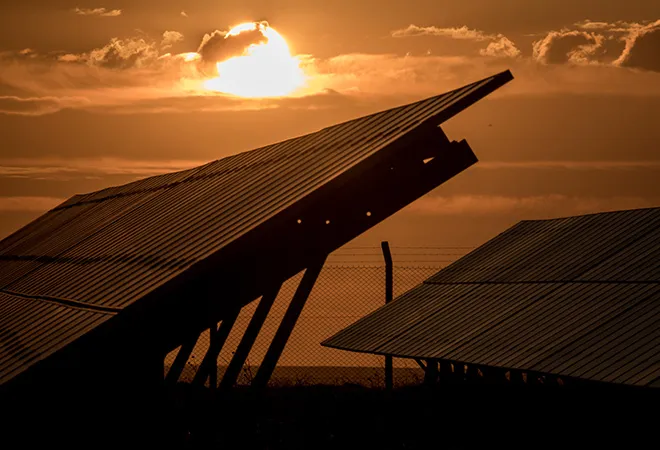-
CENTRES
Progammes & Centres
Location

Image Source: Getty Images / Chris McGrath
Read all the curated essays from Raisina Scrolls here
At a time when nationalism is rising and individual countries are facing a growing array of threats, it is critical that we recognize a shared and unprecedented global challenge: We need to nearly double our infrastructure in the next decade to meet global development needs, while at the same time achieving a systematic shift away from business-as-usual, carbon-intensive options to low-emissions, resilient infrastructure, to avoid catastrophic climate change. Public finance alone cannot fill this investment gap. So the trillion-dollar question is how to attract private sources of capital in support of the transition to a low-carbon, resilient economy.
The recent special report by the UN Intergovernmental Panel on Climate Change (IPCC) on the impacts of global warming of 1.5 degrees Celsius above pre-industrial levels reminded us that achieving climate and sustainable development objectives requires urgent climate action. The impacts of climate change are already happening. We experienced extreme weather events this year, from catastrophic floods in Kerala and Japan to wildfires in California. These weather events are merely a taste of how climate change could spin out of control, threatening human wellbeing and our planet. Climate action is needed to avoid degradation of biodiversity and ecosystems as well. For instance, according to the IPCC report, coral reefs are projected to decline by a further 70 to 90 percent at 1.5 degrees Celsius, and by more than 99 percent with a global warming of 2 degrees Celsius! These ecosystems provide food, support biodiversity and deliver economic benefits estimated at $170 billion a year. Shifting investments away from carbon-intensive assets is also critical to reduce local air pollution and associated health costs. A recent study found that more than 90 percent of the world’s children breathe toxic air every day. Air pollution now causes more deaths annually than tobacco.
Read further here
The views expressed above belong to the author(s). ORF research and analyses now available on Telegram! Click here to access our curated content — blogs, longforms and interviews.

Geraldine Ang is a policy analyst on green finance and investment at the Organisation for Economic Co-operation and Development (OECD). Prior to joining the OECD ...
Read More +